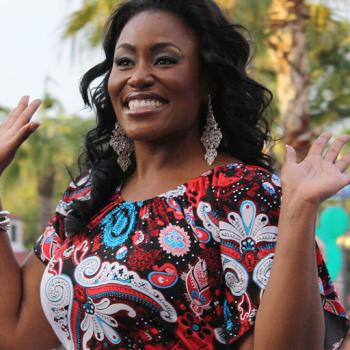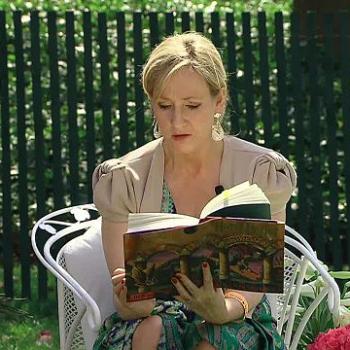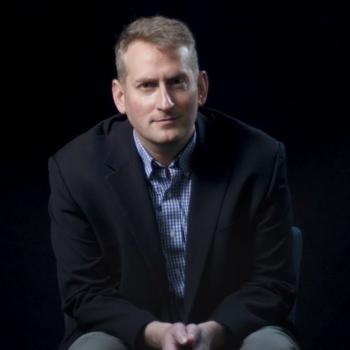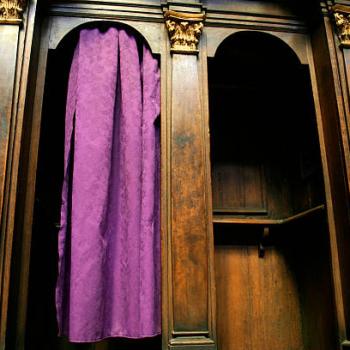
Whether or not you’re the movie-going type, you’ve been hearing an awful lot about this one movie lately. It’s breaking box office records, FOX news is promoting it like crazy, and wild-eyed leftists are feverishly tweet-blogging their hatred for it and its subject. I’m talking about Clint Eastwood’s American Sniper, based on the best-selling book by Navy SEAL sniper Chris Kyle.
With over 150 confirmed kills, Chris Kyle is the most lethal sniper in American history. After ten years of putting country before family, he resigned from the Navy to recover from post-traumatic stress, save his marriage and get to know his own children. He chose to put his story in book form to give people a candid look at the Iraq conflicts and the sacrifices made by military families. A compelling war memoir and a painfully honest love story, it shot to the top of the charts, and Kyle’s public profile soared. But he took the most pride in the organizations he founded to help other struggling veterans cope with the transition back to civilian life. These included veterans with PTSD. On February 2, 2013, Chris Kyle was shot and killed by one of those veterans at a gun range. All of Texas mourned.
Those who knew Chris Kyle well remember him as a war hero, a loving husband and father, and a humble man who shied from the spotlight and never stopped pouring himself into the military community. But as always, the left-wing media knows best. Meanwhile, you, a fairly pro-military conservative Christian (if previous surveys of my readership are a clue) are watching it all unfold and getting curious. If you’re like me, you may not have even heard of Chris Kyle until this movie came out. You now have conservative friends who are raving about the movie, and you’re wondering if you should see it too, just to find out what all the fuss is about. You’re probably wondering how much of it is Hollywood and how much of it is Kyle’s true story. You wonder if it’s really as conservative as Fox News says. You wonder if it’s any good. And you wonder if there’s anyone out there discussing Chris Kyle’s story from a Christian perspective, as distinguished from a purely conservative perspective.
Wonder no more, because [Larryboy voice] I. Am. That. Hero. Having seen the movie, read the book, and listened to every interview with Kyle that I could find, I’m here today to answer all your questions about American Sniper.
Has Hollywood really managed to make a war movie that’s not rubbing our noses in an anti-war agenda?
Miraculously, the answer is mostly yes. Yes, it portrays military men with dignity and respect. Yes, it honors the life of Chris Kyle instead of demonizing him. Actor Bradley Cooper has said that he “loved every minute of walking in [Chris’s] shoes,” and it shows. His performance is sincere, powerful and moving, and the actress who plays Kyle’s wife gives a no less stirring performance. Even that much is unusual for Hollywood, and I think this is what’s drawing heartland audiences to see it in droves. By the time the credits roll over footage of Kyle’s actual funeral procession, with all the rows upon rows of people lined up in the rain to honor him, you can’t help welling up.
But mostly yes is slightly no. Some of Kyle’s key sniping moments still fall victim to the Hollywood principle that moral decisiveness makes boring entertainment. For example, a key trope in the film is Kyle’s moral struggle with killing children who are handling a weapon. His first kill is a pre-teen boy whose mother hands him a weapon and sends him to attack troops. (Kyle then also shoots the boy’s mother when she charges.) Later, he agonizes and prepares to shoot as an even younger child ignorantly picks up and aims a grenade launcher. Fortunately, the boy drops it. Great drama, but the problem is, it’s not true. In fact, the real Chris Kyle decided that he would never shoot a child, as a matter of principle. Not the liberal definition of “child,” mind you (which includes 16-year-olds purposefully shooting machine guns), but presumably pre-teens and toddlers would count. He did in fact shoot an armed, charging woman for his first kill, but she was a legit combatant. Remember though, simple, clear-cut moral decisions make bad Hollywood drama. Hollywood has trouble speaking the language of moral absolutes, and this movie is still not an exception to that rule.
Incidentally, Kyle himself never criticized anyone for taking issue with the politics of the Iraq conflicts. His line was, “I don’t pick the wars I fight, y’all send me to them.” So while there are also a couple subtle moments in the film questioning the point of the campaign as a whole, I wasn’t bothered as much by these. And obviously, the personal toll war takes on a man and his family makes a fascinating character study no matter what side of the political spectrum you fall on.
So it’s still a pretty good movie?
Not for young viewers, but yeah, it is pretty good. Parts of it are great, actually. The most harrowing moments for me are when Kyle is at home, and some subtle distraction begins almost subconsciously to unlock memories for him. Those scenes are chilling in their understatement. I also especially love the scenes when Kyle first discovers he can continue saving soldiers by coming alongside disabled vets. But it’s not a perfect film, and there are some additions and artistic liberties. Two sub-plots involving villains that were only loosely based on reality drag on and on somewhat. I would have liked to see more home front scenes instead. In the original book, Kyle shares some really intense stuff about his baby daughter’s C-section birth, then a later scare when her kidneys stopped working and they thought she had leukemia. I’m kind of dumbfounded that they didn’t use any details like this. And of course, a lot of the ups and downs in his journey back even after coming home for the last time are glossed over.
Still, there’s only so much you can use, and I was amazed at how many details are true to the book. He disobeys orders and leaves his post to go house-to-house with the Marines so he can protect them better: True. His wife calls him up, when shots suddenly break out and she hears the whole thing over the dropped phone: True. He lands a 2100-yard shot: True(!) And so on. There was only one completely unbelievable scene, and that’s where he’s pinned down in his final firefight and calls his wife in tears to say he’s “ready to come home.” Huh?? Never happened, would never happen. Pure fluff.
Some headlines say the movie avoids the fact that Kyle was a braggart who made up stories about himself after the war. Something about a lawsuit and punching a guy in a bar for bad-mouthing the SEALS. What’s up with all that?
First, let me go back to the real Chris Kyle for a moment: If you actually read Kyle’s book, he spends almost as much time praising his brothers in arms as he does telling his own life story. The portrait he gives of one beloved comrade in particular is some of the most moving stuff I’ve ever read in a military memoir. You can feel the love and sorrow on every page as Kyle recalls this friend’s sense of humor, his spirit, his grit and perseverance despite being shot and blinded in combat. I defy anyone to read these recollections and still come away saying Chris Kyle was a self-centered braggart. By the way, this friend’s nickname was “Biggles,” and he later died of surgery complications. His injury was one of the main things that traumatized Kyle, and the movie does a great job with his character.
Now the man in the bar, identified by a pseudonym in Kyle’s book, was ID’ed as celebrity wrestler/politician Jesse Ventura. Ventura is a 9/11 “truther,” famous for being anti-war and anti-Bush. Kyle claimed that Ventura was running his mouth about the war at a wake for another friend, and when Kyle tried to quiet him down, Ventura got belligerent and eventually said “You guys deserve to lose a few.” Ventura later admitted that he was in that bar at the time but flatly denied getting punched by Kyle or ever even meeting him. He took it to court and notably refused to drop the suit after Kyle’s untimely murder. One witness on Ventura’s side did overhear him voicing criticism of the Iraq war but recalled no insult to SEALS and no brawl with Kyle. The case was ultimately decided in Ventura’s favor. You can read a good overview of the case here and some specifics from Kyle’s witnesses here. Based on what I’ve read, and based on some very genuine-sounding video interviews with Kyle where he recounts the story in his own words, I’m inclined to believe his side.
Kyle’s taller tales include a claim that he shot two armed car-jackers dead and was let off the hook by the police, and most dubiously, a supposed claim that the government secretly sent him to pick off armed post-Katrina looters in New Orleans. According to this article, there might be some reason to think the car-jacking incident could have occurred. And I say “supposed claim” on the second one because the only primary source account of the story that I can find comes from fellow SEAL Brandon Webb. And according to Webb, Kyle was referring to other SEAL friends of his who worked for a black ops group. Kyle himself didn’t say he participated in the op, only that he knew a number of guys involved in it who had racked up kills. People have only arguments from silence to “prove” that the whole thing never happened. I myself could easily imagine the government’s orchestrating something like that and pretending it didn’t happen. But regardless, Kyle’s words have gotten twisted through multiple re-tellings into a claim that he was personally shooting looters. Webb also goes on to say that he and Kyle had a long conversation about the morality of it, and his exact words are, “It clearly bothered him, and it still bothers me.”
As for the car-jacking claim, sure, he could have made it up. By his own admission in his own book, it’s not like he’s never told a lie in his life. That would indeed be unfortunate, but at this point, we’ll never know. I’m content to leave it between God and Kyle.
I think I also saw some liberal quote-mining from the book which “proved” that he was really just a bloodthirsty killer who loved to shoot people. Really?
Yeah, not really. The quotes are essentially a handful of one-liners that have been taken out of context. Again, the real Chris Kyle repeatedly said that he wished he could be known for the number of guys he saved instead of the number he killed. When TIME magazine asked if he thought killing was “what he was best at,” he replied that he was “pretty comfortable” not to be killing people any more and made “a much better husband and father than a killer.” (Watch here.) Is it true that he took righteous satisfaction and even pleasure in killing a lot of “bad guys” and “savages” who would otherwise have hurt his buddies? Absolutely. Chris was very matter-of-fact about the evil he confronted on a daily basis and made no apology for any of his kills. But it was motivated by a deep sense of responsibility to his men, not mindless blood-lust.
Now, was he sometimes rather… careless in the language he used to describe his work? Yes. In one incident, Kyle shot an insurgent carrying a rifle, which the man’s wife later lied was just a Koran. There were witnesses, but Kyle was grilled by superior officers anyway, whereupon he writes that he lost his temper and protested, “I don’t shoot people with Korans. I’d like to. But I don’t.” In another candid moment, he writes that he fought for his buddies alone, and that he “didn’t risk my life to bring democracy to Iraq.” Then comes the oft-quoted line that he “couldn’t give a [bleepity-bleep]” about the Iraqis, to make sure we get the point. Honest, yes, but not exactly appropriate talk for a self-proclaimed Christian.
Speaking of language, is there a lot of it in this movie?
Oh yeah. Lots and lots. And while Kyle is very well-spoken in all the interviews I’ve watched him give, there’s unfortunately lots and lots in the book too. Someone really needed to sit down and take him through a little study in Paul. Sadly, swearing is an art form unto itself in the military, and Kyle was no exception. This might be a deal-killer for you, and if so, stick with it! Say “no” to your friends when they insist you “have” to watch it. Only watch something if you want to.
And speaking of questionable moral behavior, I watched a trailer where I could have sworn he’s in bed with his wife before getting married…
Yep, you did see that. Unfortunately, also true. The film also correctly shows him as the partying, sleeping-around type before he meets his future wife.
Now I’m really confused. Didn’t Kyle say he was a Christian?
He was raised in a Christian home and identified with the Christian faith. And eventually, yes, I do think Chris Kyle became a Christian. These aren’t synonymous with each other. To me, this is a textbook case of a guy raised in the Bible belt, identifying as Christian the way Irish people identify as Catholic (because everyone else in your culture does), but pretty clearly not internalizing the gospel message until much later in life. The same goes for his wife, whose nominal faith apparently didn’t stop her from drinking ’til she was sick at their first meeting in a bar, or from consenting to sleep with him out of wedlock. Kyle also mentions in the book that he used p*rn during deployment and at one point embarked on a near-affair with a former girlfriend before breaking it off. All of which is to say that if you walk into the movie or the book believing that Chris Kyle was practically perfect in every way, you’ll be sorely disappointed.
The good news is that Chris and Taya did not join the 95% of Navy couples who get divorced. Like Louis Zamperini, Chris was able to conquer the all-too-common demons of alcoholism and PTSD to be the strong, present husband and father his family needed. Although he doesn’t pinpoint a dramatic (re)-conversion moment, it’s surely not a coincidence that one profile reported he “began taking his family to church” at this time.
Kyle once said something very sensible about getting put on a pedestal in an interview with Ed Young, when Ed began comparing the shed blood of soldiers with the shed blood of Jesus on the cross. I know this analogy has provided fodder for many a three-hankie song, but there’s something to be said for Chris’s dose of reality response: “We’re not like Jesus, though.” Ed, who’s not the sharpest knife in the drawer, hastily back-pedaled, and Chris said, “Okay, just wanted to clarify that. Don’t compare me too much to him!”
So, do we get to see his Christianity in the movie?
Not really, no. It’s correctly mentioned in passing that one of his best buddies was a Christian who had studied for the ministry, but not the fact that this friend regularly led the men in Bible studies. And Kyle’s own faith is barely mentioned at all. I’m minded to just quote a passage from the book to rectify this:
I am a strong Christian. Not a perfect one — not close. But I strongly believe in God, Jesus, and the Bible. When I die, God is going to hold me accountable for everything I’ve done on earth.
He may hold me back until last and run everybody else through the line, because it will take so long to go over all my sins.
“Mr. Kyle, let’s go into the back room…”
But what I lean toward is that you know all of your sins, and God knows them all, and shame comes over you at the reality that He knows. I believe the fact that I’ve accepted Jesus as my savior will be my salvation. (American Sniper, pp. 376-377)
As far as the gospel is concerned, it seems safe to say that in the end, Chris Kyle got it.
Chris Kyle in five words?
A sinner saved by grace.
I’ll give the last word to one of the many soldiers Kyle walked with through PTSD. This soldier recounted one especially cathartic conversation where they exchanged stories about the friends they had lost in battle. In the end, he said, “People put the Devil of Ramadi [nickname the Iraqis gave Kyle] on a pedestal, like a god, but here we were, crying on each other’s shoulder. I would take a brother like that over a god any day.”
TIME’s 10 questions with Chris Kyle:
https://www.youtube.com/watch?v=aJ12PN81xnI?rel=0&w=500&h=315
Excellent featurette about the making of the movie (note: this replaces a shorter one I had previously):
https://www.youtube.com/watch?v=ess2crFe3YI?rel=0&w=500&h=315












